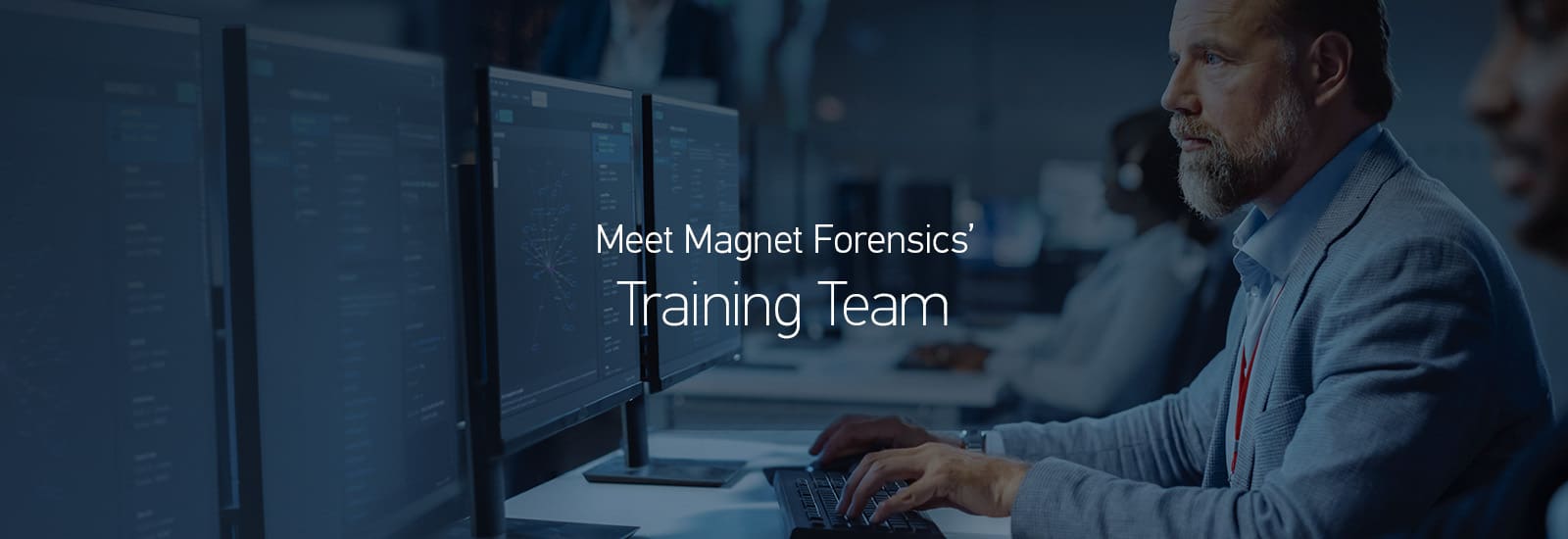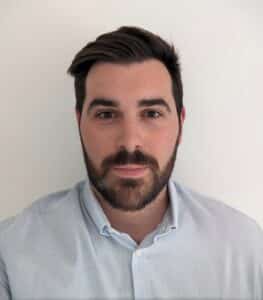
Meet the Magnet Forensics Training Team: Luke Clarke
MF: Tell us about your life before becoming a Trainer.
LC: I’m from Pembrokeshire in West Wales, UK. Growing up, I spent a lot of time in boatyards and out on the river, as both my father and grandfather have boatbuilding and sailing experience. However, I was drawn to technology and fascinated by computers.
I attended the University of South Wales and completed an integrated master’s degree in computer forensics. I then joined South Wales Police as a Digital Media Investigator, where I performed mobile phone examinations and liaised with police officers to progress digital opportunities within their investigations. After 18 months in this role, I spent five years with the Digital Forensics Unit as a Digital Forensics Investigator. This role allowed me to hone my skills as an examiner and gain further knowledge in on-scene examinations, as well as computer, mobile, car, and cloud investigations. I worked on a range of complex cases, including murders, child exploitation, fraud, and drug importation.
MF: What made you want to be a Trainer?
LC: Throughout my time at South Wales Police, I naturally gravitated towards mentoring and training. I was tasked with training new recruits in computer imaging and the fundamentals of digital forensics. I then progressed to mentoring examiners through investigations, which I found hugely rewarding. When the opportunity arose to join Magnet Forensics as a trainer, I knew it would be a great way to use the skills I had acquired and enhance my knowledge through training and learning from the experiences of others.
MF: What type of training have you taken part in personally? What is your favorite part of the role?
LC: I’ve completed numerous training courses over my seven years in law enforcement. My favourites have always been those that are hands-on, where trainers bring their personalities to the courses, making them engaging and the content more memorable.
MF: What excites you the most about a new class?
LC: The chance to meet like-minded individuals and engage with examiners from far and wide.
MF: Do you ever learn anything from the students?
LC: Absolutely. I firmly believe that you are never the smartest person in the room, as everyone has different experiences and can offer new insights and perspectives.
MF: Is there a particular moment that stands out the most to you in your career in the classroom?
LC: There is no single moment that stands out to me during my time training people. However, I always love seeing the enthusiasm and excitement students have when learning a new topic.
MF: What do students get out of training in person that they can’t get on their own?
LC: I learn best through interactive learning, and I believe this applies to many students as well. The ability to engage with others often enhances the learning experience, as students can receive immediate feedback from their trainers and learn from their peers, who may have different experiences and perspectives on how the training can be applied in real-world investigations.
MF: How prepared do you feel students are to use Magnet Forensics products after taking the training course?
LC: Students will have the opportunity to gain hands-on experience with Magnet Forensics products through scenarios designed to highlight the tool’s capabilities and explain how it works and what the data means. The courses provide examiners with a solid foundation to begin their own investigations.
MF: What is most unique about Magnet Forensics’ approach to training?
LC: Magnet focuses on helping students become the best digital forensic practitioners possible. The training provides hands-on experience with the tools and explains the datasets in ways that are easy to understand. Training also goes beyond the classroom, with trainers happy to answer any questions after the course has ended.
MF: Why do you think certification is important to examiners?
LC: In investigations, examiners act as subject matter experts. Gaining certification ensures that examiners are working to a set standard, which gives the courts confidence in their abilities and what is being reported is truthful and correct.
MF: How do you manage to keep up on the latest trends in digital forensics?
LC: Having only recently left law enforcement, I have been able to keep up with these trends firsthand. Now that I have left law enforcement, I listen to podcasts, keep up with online forums, and stay in touch with my contacts.
MF: What trends do you see coming down the pipeline in digital forensics?
LC: Computing is increasingly leaning towards cloud solutions for both processing and storage, allowing data to be stored anywhere in the world. This, combined with advancements in hardware-based encryption and security protocols, makes obtaining data for investigations extremely difficult. I foresee a greater reliance on service providers to assist with these investigations, which will require robust governance around the world.
